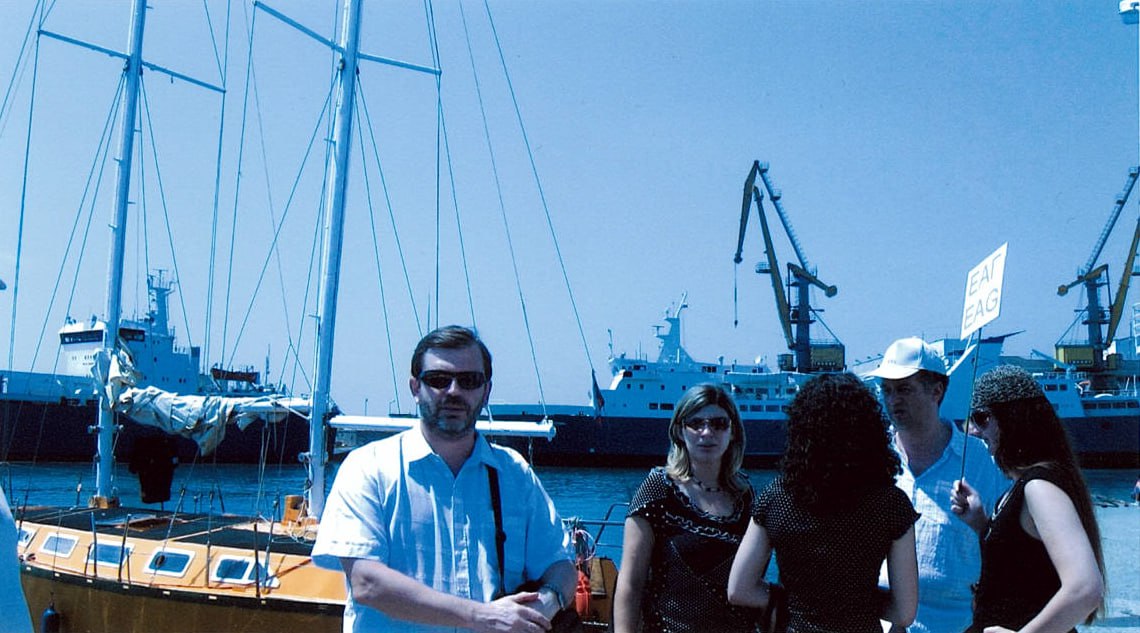The International Training and Methodology Centre for Financial Monitoring was established on December 12, 2005 by the instruction of the Government of the Russian Federation (No. 1989-r dd. November 21, 2005).
Mr. Igor Alekseev, the first Director General of ITMCFM, reflects on the foundation and milestones of the Centre:
“In the fall of 2004, the Eurasian Group on Combating Money Laundering and Financing of Terrorism (EAG) was formed by Belarus, Kazakhstan, Kyrgyzstan, China, and Russia. Soon after its establishment, there emerged a need for a dedicated organization capable of providing technical assistance and training to the EAG member countries.
Mr. Viktor Zubkov, [Director of the Federal Financial Monitoring Service from 2001 to 2007] made the decision to establish the International Training and Methodology Centre for Financial Monitoring. On November 21, 2005, the Government of the Russian Federation issued a decree on the establishment of ITMCFM, and on November 23, Mr. Zubkov proposed that I lead this Centre. Two days later, I accepted the offer.
On November 25, the Supervisory Board was formed, and by its decision, I was appointed the Director General. Accompanied by an experienced chief accountant and a lawyer, we proceeded with legal registration of ITMCFM. On December 12, we obtained all the necessary documents and opened settlement accounts, officially launching the International Training and Methodology Centre for Financial Monitoring.
In January 2006, shortly after the New Year’s Day, we initiated the recruitment process. Initially, our team comprised four members: myself, the chief accountant, the cashier, and my deputy. Subsequently, Elena, the housekeeping manager, joined us and remained with us until her retirement. She played a crucial role in designing the office layout on two floors at Staromonetny Lane [building 1, 31 Staromonetny Lane, where ITMCFM is located to date].
We expanded our team to include a lawyer, an IT technician well-versed in security systems, and science specialists. After obtaining the necessary licenses, we commenced our training sessions.
Our first “clients” were delegations from EAG countries unable to attend international events. We organized their participation in seminars, conferences, and plenary sessions of the EAG. The aim was not only to educate but also to engage states in the global system of financial security and assist other countries in establishing such a system. In 2007, the Centre extended its support to the Russian Federation’s participation in FATF and Egmont Group events.
A crucial task for the Centre during that period was assisting Kyrgyzstan in preparing a reporting system for suspicious transactions. We had to create the technical base virtually from scratch. The work was planned for six months [in line with the law on AML/CFT in the Kyrgyz Republic signed by the Kyrgyz President on July 31, 2006 and entered into force 6 months later]. Collaborating with specialists from the Federal Financial Monitoring Service, we developed instructions and compiled handbooks.
Our first training seminars in Russia were held for pawnshop owners. This was during the renovation of the main building on Staromonetny, and we rented space nearby, in the Legion Business Center. It was a simple yet elegant setup.
I vividly recall the EAG Plenary Meeting in 2007 in China. The ITMCFM organized the event almost entirely, but only my deputy, Mr. Alexander Filippov, and I were able to attend. It was challenging; the two of us handled everything—from arranging tables and planning the menu to coordinating and seating the guests. Nevertheless, the plenary week concluded with excellent organization.
On the international stage, ITMCFM aimed to promote the idea of global communication for financial security and shape a unified global framework. Centre recognition, along with the acknowledgment of its capacity and experience, was crucial. Our primary project, as mentioned earlier, involved offering technical assistance to Kyrgyzstan. This initial experience had tight deadlines and an almost nonexistent framework. Subsequently, we provided technical assistance to Kazakhstan, Tajikistan, and Turkmenistan. The Federal Financial Monitoring Service and the EAG Secretariat played a pivotal role since, at that time, ITMCFM lacked sufficient resources to independently conduct all the training sessions.
Certainly, there were numerous problems and challenges at the early stage. However, ITMCFM succeeded in achieving its goal and progressively acquired new staff, experiences, and resources, solidifying its position as an integral part of the anti-money laundering system in Russia and the Eurasian region.

Mr. Igor Alekseev’s private archive: 2007, China, VII EAG Plenary Meeting.


